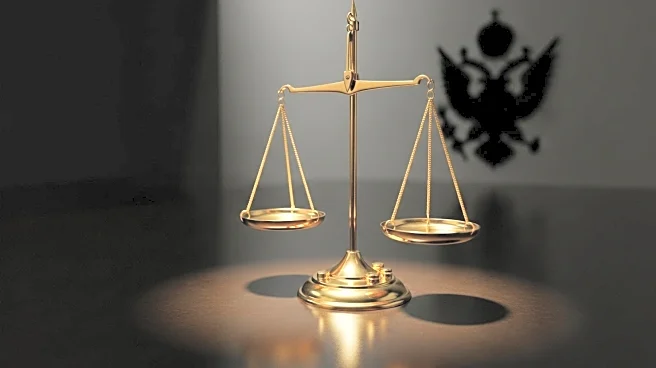What's Happening?
Defense Secretary Pete Hegseth has initiated significant changes within the military's legal structure, including the removal of top judge advocate generals (JAGs) and the reassignment of JAG officers to immigration judge roles. This move is part of a broader campaign to align military operations with civilian law enforcement, as seen in recent deployments for immigration enforcement and actions against Venezuelan drug-smuggling boats. Critics argue that these changes undermine the military's adherence to the rule of law, as JAGs traditionally provide independent legal advice to commanders. The purge has sparked concern among legal experts and military officials about the erosion of legal safeguards within the armed forces.
Why It's Important?
The restructuring of the military's legal framework under Hegseth's leadership could have profound implications for military operations and civil-military relations. By diminishing the role of JAGs, the administration risks compromising the military's ability to operate within legal boundaries, potentially leading to unlawful actions. This shift may affect military readiness and its capacity to address international threats, as resources are redirected towards domestic law enforcement. The changes also raise ethical questions about the balance between military obedience and legal accountability, with potential long-term impacts on military culture and governance.
Beyond the Headlines
The purge of JAGs reflects a broader trend of politicizing military operations, which could undermine public trust in the armed forces. The emphasis on civilian law enforcement roles may detract from the military's primary mission of national defense, altering its strategic focus. Legal scholars warn that such actions could set a dangerous precedent, eroding the separation between military and civilian spheres and challenging the foundational principles of military justice.










